
John Dewey
(1859-1952)
John Dewey was the most significant educational thinker of his era and, many would argue, of the 20th century. As a philosopher, social reformer and educator, he changed fundamental approaches to teaching and learning .
His ideas about education sprang from a philosophy of pragmatism and were central to the Progressive Movement in schooling. In light of his importance, it is ironic that many of his theories have been relatively poorly understood and haphazardly applied over the past hundred years.
(1859-1952)
John Dewey was the most significant educational thinker of his era and, many would argue, of the 20th century. As a philosopher, social reformer and educator, he changed fundamental approaches to teaching and learning .
His ideas about education sprang from a philosophy of pragmatism and were central to the Progressive Movement in schooling. In light of his importance, it is ironic that many of his theories have been relatively poorly understood and haphazardly applied over the past hundred years.
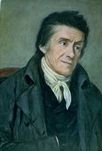
Johann Heinrich Pestalozzi
(1746—1827)
His educational philosophy and instructional method that encouraged harmonious intellectual, moral, and physical development.
His methodology of empirical sensory learning, especially through object lessons. His use of activities, excursions, and nature studies that anticipated Progressive education.
(1746—1827)
His educational philosophy and instructional method that encouraged harmonious intellectual, moral, and physical development.
His methodology of empirical sensory learning, especially through object lessons. His use of activities, excursions, and nature studies that anticipated Progressive education.
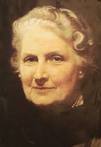
Maria Montesorri
(1870-1952)
Believed that children acquired self-discipline and self-reliance by becoming aware of their mistakes and repeating a particular task until it was done correctly.
Believed that structure enhanced the child's freedom. Known for Montesorri Method which is a method of educating young children that stresses development of a child's own initiative and natural abilities especially through practical play.
(1870-1952)
Believed that children acquired self-discipline and self-reliance by becoming aware of their mistakes and repeating a particular task until it was done correctly.
Believed that structure enhanced the child's freedom. Known for Montesorri Method which is a method of educating young children that stresses development of a child's own initiative and natural abilities especially through practical play.
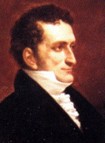
Johann Friedrich Herbart
(1776-1841)
Is the founder of the pedagogical theory
Came with five formal steps in teaching known as Herbatian Method:
-Preparation
-Presentation
-Comparison and Abstract
-Generalization and Application
(1776-1841)
Is the founder of the pedagogical theory
Came with five formal steps in teaching known as Herbatian Method:
-Preparation
-Presentation
-Comparison and Abstract
-Generalization and Application
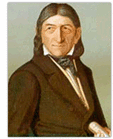
Friedrich Froebel
(1782-1852)
German educator who was founder of the kindergarten and one of the most influential educational reformers of the 19th century.
Philosophy of education which is encompassed by the for basic components of free self-activity,creativity,social participation and motor expression.
Significant contributions to early childhood education was his theory of introducing play as a means of engaging children in self-activity for the purpose of externalizing their inner natures life.
(1782-1852)
German educator who was founder of the kindergarten and one of the most influential educational reformers of the 19th century.
Philosophy of education which is encompassed by the for basic components of free self-activity,creativity,social participation and motor expression.
Significant contributions to early childhood education was his theory of introducing play as a means of engaging children in self-activity for the purpose of externalizing their inner natures life.
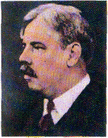
Edward Lee Thorndike
(1874-1949)
His work on animal behavior and the learning process led to the theory of connectionism and helped lay the scientific foundation for modern educational psychology.
Thorndike contributed a great deal to psychology. His influence on animal psychologists, especially those who focused on behavior plasticity, greatly contributed to the future of that field. His contribution to measurement influenced philosophy, the administration and practice of education, military administration, industrial personnel administration, civil service and many public and private social services
(1874-1949)
His work on animal behavior and the learning process led to the theory of connectionism and helped lay the scientific foundation for modern educational psychology.
Thorndike contributed a great deal to psychology. His influence on animal psychologists, especially those who focused on behavior plasticity, greatly contributed to the future of that field. His contribution to measurement influenced philosophy, the administration and practice of education, military administration, industrial personnel administration, civil service and many public and private social services

Jerome Bruner
Made significant contributions to human cognitive psychology and cognitive learning theory in educational psychology, as well as to history and to the general physical of education.
He contributed important ideas regarding (a) modes of representation, (b) the importance of teaching and learning “optimal structure” , (c) the spiral curriculum, and (d) learning through acts of discovery in order to rearrange and transform what is learned “in such a way that one is enabled to go beyond the evidence so reassembled to additional new insights”
Made significant contributions to human cognitive psychology and cognitive learning theory in educational psychology, as well as to history and to the general physical of education.
He contributed important ideas regarding (a) modes of representation, (b) the importance of teaching and learning “optimal structure” , (c) the spiral curriculum, and (d) learning through acts of discovery in order to rearrange and transform what is learned “in such a way that one is enabled to go beyond the evidence so reassembled to additional new insights”
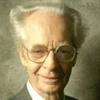
Burrus Frederick Skinner
(1904-1990)
He is probably best known as the original of programmed instruction and teaching machines, and behavior modification techniques.
Believer of the idea that human free will was actually an illusion and any human action was the result of the consequences of that same action.
(1904-1990)
He is probably best known as the original of programmed instruction and teaching machines, and behavior modification techniques.
Believer of the idea that human free will was actually an illusion and any human action was the result of the consequences of that same action.
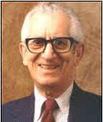
Benjamin Bloom
(1913-1999)
Published the Taxonomy of Educational Objectives.
Made contributions to the classification of educational objectives and to the theory of mastery of learning n. He also directed a research team which conducted a major investigation into the development of exceptional talent whose results are relevant to the question of eminence, exceptional achievement, and greatness.
(1913-1999)
Published the Taxonomy of Educational Objectives.
Made contributions to the classification of educational objectives and to the theory of mastery of learning n. He also directed a research team which conducted a major investigation into the development of exceptional talent whose results are relevant to the question of eminence, exceptional achievement, and greatness.
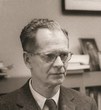
Sidney Pressey
(1888-1979)
Believed that students have a great ability to handle these acceleration techniques, but recognized how they can burden students and instructors. In addressing the postwar needs of the time he suggested these steps for accelerating education: 1) The obtaining of college credit for experiences other than course-taking, 2) The colleges more effectively taking responsibility to assist the returning veterans, 3) Guidance programs being set up for those involved in accelerated programs, 4) Considering the students and how they would handle part-year versus all-year programs, and 5) The colleges need to consult with the students about their ideas for improvement.
(1888-1979)
Believed that students have a great ability to handle these acceleration techniques, but recognized how they can burden students and instructors. In addressing the postwar needs of the time he suggested these steps for accelerating education: 1) The obtaining of college credit for experiences other than course-taking, 2) The colleges more effectively taking responsibility to assist the returning veterans, 3) Guidance programs being set up for those involved in accelerated programs, 4) Considering the students and how they would handle part-year versus all-year programs, and 5) The colleges need to consult with the students about their ideas for improvement.
 RSS Feed
RSS Feed